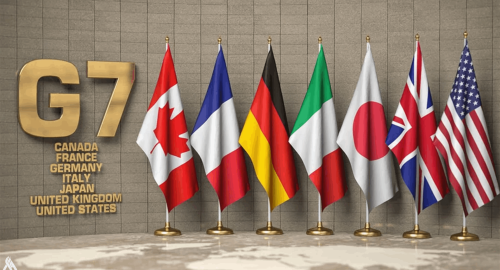
Food Security Law supports prices and combats poverty, PM's advisor says

- 14-05-2022, 13:12
Baghdad-INA
The financial advisor to the Prime Minister, Mazhar Muhammad Salih, elaborated on Saturday, the Central Bank’s measures to stabilize prices and reduce inflation, while stressing that Food Security Law supports prices and combats poverty.
“The main source of inflation or the soaring prices in Iraq is mainly caused by what is called transitional or imported inflation, as the country relies in an unprecedented way on imported supply chains, all of which have been affected by different degrees of surge pricing due to the high global energy prices and food shortage crisis in the world as well as the repercussions of Russia-Ukraine war,” Salih told The Iraqi News Agency (INA).
He added that "To confront the burdens of inflation on economic life in Iraq, the Iraqi financial policy, through the indicators stipulated in the emergency law for food security and development, has pledged to achieve broad support for food prices and cash incomes to combat poverty in its various forms, as these steps where preceded by a package of measures taken by the fiscal policy that support the prices, including (zero taxes and customs duties) on a wide range of food and necessary imports, in addition to the stability of selling prices of all government goods and services, including, for example, fuel and electricity, as well as adding more items for ration card at subsidized prices.
Salih Noted that "The paragraph of governmental support in spending relative to the gross domestic product will remain high, which is directly estimated at 15% of Iraq's gross domestic product."
He explained that "The monetary policy of the Central Bank realizes that there are red lines that price actions and their general trends should not cross, in order to allow the monetary policy of the Central Bank to act according to a strict program to confront the manifestations of hyperinflation if the annual growth in prices exceeds high alarming levels and enters the midst of the two decimal places."
Salih also pointed out that "The precautionary measures of monetary policy to ensure general price stability and combat inflationary activities are definitely ready, and implemented when necessary, through a strict monetary policy in the interest of the strength and stability of the national currency, and in coordination with fiscal policy and general economic policy."
Al-Sudani Arrives in Sulaymaniyah
- politics
- 10:00
G7 calls for immediate ceasefire in war in Sudan at two-year mark
- International
- 09:12
Iraqi Airways: Airbus A330 is back in service
- Local
- 09:00
Japan takes a cease and desist order to Google
- Multimedia
- 08:16
Duhok of Iraq and Qadsia of Kuwait match kicks off
- Sport
- 25/04/15
Four Daesh terrorists detained in Salahuddin
- Security
- 25/04/14
PM: The value of investment licenses in Iraq reaches $88 billion
- politics
- 25/04/09












